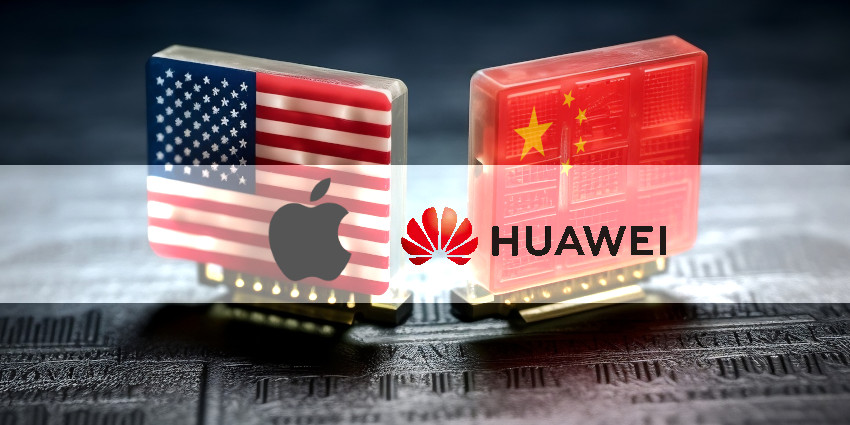Apple’s Vision Pro headset could face Huawei headwinds when selling its product in mainland Chinese markets, Gizchina has alleged in a report this week.
The incident comes from a trademarked name for Huawei’s Vision Pro, which shares the same name as Apple’s Vision Pro. However, Huawei patented the former in 2019, at the start of the push for immersive hardware.
Four years later, Apple has revealed its Vision Pro device at the WWDC. Despite the fanfare, the article alleges this could “eventually lead to competition and copyright lawsuits.”
This could potentially create roadblocks for Apple’s headset if it attempts to sell in China. Currently, the device has debuted for sale in markets in the United States, with plans to expand to global markets in the near future.
Huawei already authorized for a trademark, “Vision Pro” 4 years ago, which lasts for 10 years. So, it could be difficult for Apple to release Vision Pro in China.https://t.co/HxUkgcV0NJ pic.twitter.com/JxopZDKmT3
— Dohyun Kim (@dohyun854) June 11, 2023
Huawei’s Vision Pro holds the registered trademark number 38242888, which the Chinese tech giant received in May 2019 as a Class 9 trademark. This ensures trademark rights for Huawei’s Vision Pro up to 27 November 2031.
According to Chinese patent law, Class 9 trademarks extend across numerous product types such as photo, cinema, and signalling hardware. For the Shenzhen-based firm, it holds ‘Vision’ trademarks for its Vision Glass augmented reality (AR) smart glasses and Vision Smart TVs.
Background on China-US Trade War
Demond Cureton, Senior Journalist, XR Today, to analyse the potential outcome of a trademark row between the US and China for the Apple Vision Pro.
It’s no secret that Washington and Beijing have remained in a massive impasse over the US-China trade war.
The former Trump administration launched the trade dispute with roughly $60 billion in trade tariffs on steel and aluminium in 2018. Trump’s cabinet initiated the measures in a bid to limit the trading deficit between the two nations and slow China’s competitiveness in global markets.
The knock-on effects of this have been catastrophic for the global technology market. In the United Kingdom, the Government’s 2020 Science and Technology meetings resulted in the complete removal of Huawei kit from national telco operator networks.
Government officials cited ‘national security threats’ — sanctions from Washington for using Huawei kit.
Oliver Dowden, then-Secretary for the Department for Digital, Culture, Media & Sport, said in his July 2020 statement,
“The new US measures restrict Huawei’s ability to produce important products using US technology or software […] Given the uncertainty this creates around Huawei’s supply chain, the UK can no longer be confident it will be able to guarantee the security of future Huawei 5G equipment affected by the change in the US foreign direct product rules”
According to estimates, Britain’s rip-and-replace policy would cost the country £18.7 billion due to a three-year delay in rolling out its 5G. The figures do not include divestments from Chinese companies.
Other US-allied powers such as Australia, Japan, New Zealand, and Canada — many of which are Five Eyes nations — activated a ‘rip-and-replace’ policy towards the Chinese telecom giant, sparking massive diplomatic disputes. Conversely, Ericsson and others stepped in to fill in for Huawei’s absence in the UK.
EU Calls on Support for Full Huawei Ban
In addition to the UK, France, Sweden, Denmark, Belgium, and others have adopted aggressive stances toward Huawei 5G kit and consumer products.
These countries have required their teleco operators to replace Huawei’s kit in their networks fully, but also ban sales of some Huawei products in their respective countries.
Notwithstanding, the European Union has begun mulling a mandatory ban on Huawei’s kit across the 27-member bloc. The measure could crack down on member states continuing to slow or avoid removing the Chinese firm’s 5G technologies from their markets.
In the EU meeting, Thierry Breton, EU Internal Market Commissioner, slammed member states for failing to adopt hardline stances for Huawei bans in key technologies. This could prompt EU officials to introduce the full ban, citing security risks.
How Might China Respond?
Due to previous treatment from Western countries, one can rest assured Huawei will force Apple to change its product name or face penalties when entering its market. China is the world’s largest consumer market, and Apple has an advantage over Meta Platform and Google — they’re allowed in the country.
This access to Chinese markets could potentially expand Apple’s market share significantly, and failure to enter it would result in major profit losses. Furthermore, Apple may reconcile this by renaming the device in markets where Huawei sells its Vision Pro to avoid further clashes.
Currently, ByteDance holds most of China’s market share for VR headsets. This comes as Meta Platforms continues to negotiate with mainland companies and authorities on selling their devices in China.
This also arrives at a time when reconciliation may prove advantageous for Huawei and its competitors.
Huawei has reentered global markets with its P60 and upcoming Mate 60 smartphones after years of tumultuous trade bans on 5G and chipmaking components. The latter phone may return Huawei’s 5G capabilities.
Huawei’s P30 series was the last flagship phone to include Google Mobile Services (GMS) natively. US sanctions in May 2019 have targeted the embattled firm’s Kirin chipmaking capabilities and blocked access to Qualcomm 5G-enabled processors and components.
Apple-Huawei Row over MatePod Earbuds
The news comes after a major row between the two tech giants. Apple failed to block Huawei from incorporating its MatePod trademark for its consumer earbuds in a 2021 IP row, reports show.
The South China Morning Post (SCMP) noted the Trademark Office of the China National Intellectual Property Administration (CNIPA) issued the statement.
Additionally, the Cupertino-based company hoped to block Huawei from adopting the ‘Pod’ term for its products, stating it had “maliciously copied” Apple’s trademarked name, it added
CNIPA officials ruled that Apple had “insufficient evidence” against Huawei and granted the latter the MatePod trademark. Apple could potentially appeal the ruling at a later date, reports found.
China Bans Micron Technologies
China is also increasing pressure on US authorities and businesses to assert control over its domestic markets.
In late May, Beijing banned Micron Technologies from doing business in China. The trade ban triggered Gina Raimondo, US Commerce Secretary, to oppose the measure against the largest US memory chipmaking firm.
Raimondo said,
“[The ban targets] a single U.S. company without any basis in fact, and we see it as plain and simple economic coercion and we won’t tolerate it, nor do we think it will be successful”
Chinese regulators cited potential revenue reductions, causing Micron to fail its network security review. Their statement reciprocates measures from the UK and others, citing supply chain disruptions due to sanctions.
US-China Tech Relations: Pay to Play?
G7 leaders have also inked a deal to target China over alleged economic coercion. Many of the provisions in the deal come from the US CHIPS Act, widely hailed by lawmakers on Capitol Hill as a measure to protect US semiconductor production.
Raimondo noted that the CHIPS act aimed to “strengthen and bolster our domestic production of semiconductors.” Additionally, she urged Indo-Pacific Economic Framework (IPEF) member-states such as Japan, South Korea, Singapore, and others to contribute.
“The investments in the CHIPS Act are to strengthen and bolster our domestic production of semiconductors. Having said that, we welcome participation from companies that are in IPEF countries, you know, so we expect that companies from Japan, Korea, Singapore, etc, will participate in the CHIPS Act funding,” Raimondo said.
With the ongoing US-China trade row, with both sides locking horns over IP and components, one can expect Huawei would defend its IP in the mainland.







